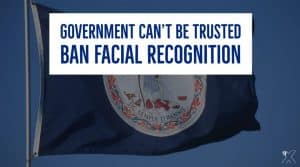(Natural News) Republican senators from Kentucky co-sponsored a bill that would make a social media platform liable for civil damages if that platform “deletes or censors the user’s religious speech or political speech.”
Sens. Robby Mills and Phillip Wheeler proposed Senate Bill 111 – entitled the “Stop Social Media Censorship Act” – in response to Twitter’s decision to ban former President Donald Trump.
The bill states platforms like Twitter and Facebook would not be allowed to “shadowban” users – meaning to adjust algorithms to make others less likely to see questionable content.
Under the bill, platforms would be expressly prohibited from justifying their actions by claiming a user posted “hate speech” if sued. The bill defines “hate speech” as “a phrase concerning content that an individual finds offensive based on his or her personal moral code.”
That said, the bill still allows for the deletion of a message that “calls for immediate acts of violence” and “incites criminal conduct.” It also states that Kentucky citizens “deserve to enjoy their free exercise rights of speech and religion in certain semi-public forums commonly used for religious and political speech, regardless of which political party or religious organization they ascribe to.”
Perhaps the most important, the bill emphasizes that the social media platforms “must be deterred from maliciously interfering in elections.”
Meanwhile, a Republican lawmaker drafted legislation that could also land Big Tech companies in legal trouble for silencing political posts.
North Dakota Rep. Tom Kading stated that he started drafting the bill in December 2020 after watching social media censorship ramp up toward the end of last year. According to Kading, the censorship has only gotten worse since then, culminating with the banning of Trump from several social media platforms.
The bill states that social media sites would be liable in a civil lawsuit for damages to a North Dakota resident “whose speech is restricted, censored or suppressed,” as long as it is not “obscene, lewd, lascivious, filthy, excessively violent, harassing or otherwise objectionable.”
Kading explained that if a website comes out and selectively publishes information or manipulates true information in order to create a certain desired narrative, it essentially amounts to defamation.
“I’m frankly shocked at what’s happening to our country and censoring does not create unity, it does not help the situation of division in our country, and it does not de-escalate the situation,” Kading said. “All it really does is make those who have been silenced dig in deeper and be more suspicious of what’s going on.”
Censorship in social media affects millions worldwide so the Kentucky and North Dakota bills can start a global trend. But with Big Tech’s massive team of attorneys and resources, those bills may not be enough to limit censorship and banning of accounts. (Related: Foreign leaders are now condemning US regime for brutal censorship of American citizens.)
Legal experts expect SB 111 to be struck down
Legal experts said the Kentucky bill, also called SB 111, violates the Constitution and years of legal precedent.
“It is, to me, so clearly unconstitutional … that it should be simply disregarded,” open records attorney, Jon Fleischaker said. “It is a waste of time and money.”
He added that private companies have the right to do business – or not – with whomever they want.
University of Louisville law professor, Sam Marcosson, pointed out that courts have long held that the government cannot require media companies to publish things that they don’t want to.
“Although the context here is social media rather than a traditional newspaper, the core principle is the same,” Marcosson said. “SB 111 employs coercive government power to force social media sites to publish content that may violate their rules.”
Both Fleischaker and Marcosson expect the bill to face challenges if enacted and to quickly be struck down.
Follow FacebookCollapse.com for more news and information about social media censorship.
Sources include:






